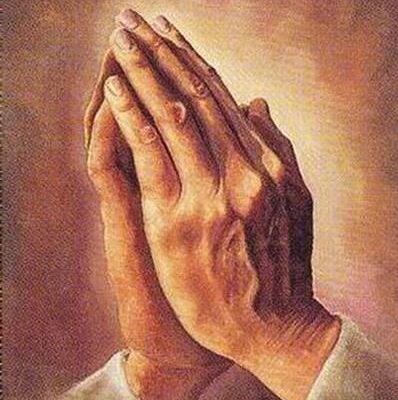BALTIMORE – The United States Conference of Catholic Bishops (USCCB) gathered for their Fall Plenary Assembly in Baltimore, November 11-14. The bishops began their plenary in prayer at the Baltimore Basilica and as the public session of the assembly began, they sent a message to the Holy Father, followed by an address by Cardinal Christophe Pierre, papal nuncio to the United States. Archbishop Timothy P. Broglio of the Archdiocese for the Military Services, USA, and president of the USCCB, also addressed the bishops.
Attending the plenary as a special guest was Bishop Stepan Sus, auxiliary and curial bishop to the head of the Ukrainian Greek-Catholic Metropolitan of Kyiv-Halych, who shared his testimony of the Church in Ukraine in the midst of war. Bishop Roy E. Campbell, auxiliary bishop of Washington and president of The National Black Catholic Congress (NBCC) gave a brief presentation to the body on the history, mission and programs of the NBCC. And as the universal Catholic Church prepares to celebrate the Jubilee Year 2025, Sister Maria Juan Anderson, a Religious Sister of Mercy of Alma, Michigan who currently serves as the coordinator for the Bishops’ Office for United States Visitors to the Vatican, shared information about her office and the services they provide to pilgrims visiting Rome. Mr. Patrick Kelly, Supreme Knight of the Knights of Columbus, provided an update on the Order’s Cor initiative.
The bishops received a report on the 2021-2024 Synod of Bishops that concluded in Rome last month; a report on the Eucharistic revival initiative and the National Eucharistic Congress held this summer; and an update on the interim implementation of Antiquum Ministerium (on the ministry of the catechist). An update was also given on the Catholic Campaign for Human Development (CCHD) as a follow up to the discussion the bishops had at their June plenary on the best way that the CCHD could continue the vital work of fighting poverty. The bishops’ migration committee chairman gave an update on the work of the committee, which aims to help reshape the national narrative on migration to be more welcoming and responsive to the needs of migrants and to help the faithful better understand Catholic teaching on migration. A presentation was also given on the resources available for diocesan and parish leaders in applying the Vatican’s declaration, Dignitas Infinita (on human dignity) to the specific cultural context of the United States; this effort is an ongoing collaboration among several committees of the USCCB.
Exemplifying synodality, the bishops engaged in a table discussion during the public session on the pastoral implementation of integral ecology and Laudato si’. Specifically, they were provided with prompts to discuss how best to mark the tenth anniversary of Laudato si’. The table discussions were enhanced by the adjustment to bishops’ seating made during the November 2022 plenary to more naturally accommodate fraternal dialogue. While a summary of the discussions was not provided publicly during the plenary, the reports from each bishop group will be used to guide the work of Conference committees.
The bishops also approved the Committee on Laity, Marriage, Family Life and Youth to move forward with the drafting of a document to guide lay ecclesial ministry, which is meant to be a follow-up to the bishops’ 2005 document, Coworkers in the Vineyard of the Lord; the action item was passed with 223 votes in favor, 9 votes against, and 6 abstentions. The bishops also voted to pass the USCCB’s 2025 budget (226 votes in favor, 3 votes against, and 4 abstentions), and on the USCCB’s 2025-2028 Mission Directive, which will guide the work of the Conference staff over the next three years (225 votes in favor, 7 votes against, and 2 abstentions).
During their meeting, the bishops voted for a new treasurer and new chairmen of five standing committees. All six elected bishops will serve for one year as the chairman-elect before beginning a three-year term that begins at the conclusion of the bishops’ 2025 Plenary Assembly. They also held a consultation on advancing the causes for beatification and canonization for Sister Annella Zervas, a professed religious of the Order of Saint Benedict, and of the Servant of God Gertrude Agnes Barber, a lay woman, and by voice vote, they affirmed the advancement of both causes at the local levels.
The bishops discussed and voted on three action items related to liturgical texts, presented by the USCCB’s Committee on Divine Worship:
- The bishops voted 216 votes in favor, 4 votes against, and 3 abstentions to approve the revised New American Bible for liturgical use. The approval of this requires a two-thirds vote of the Latin Church members, with subsequent confirmatio from the Vatican’s Dicastery for Divine Worship and the Discipline of the Sacraments.
- The bishops voted 220 in favor, 2 votes against, and 1 abstention to approve the International Commission on English in the Liturgy (ICEL) Gray Book of The Order of Crowning of an Image of the Blessed Virgin Mary. The approval of this requires a two-thirds vote of the Latin Church members, with subsequent confirmatio by the Vatican’s Dicastery for Divine Worship and the Discipline of the Sacraments.
- The bishops voted 213 in favor, 1 vote against, and 9 abstentions to approve the Liturgia de las Horas: Textos propios y adaptaciones para las diócesis de los Estados Unidos de América. The approval of this requires a two-thirds vote of the Latin Church members, with subsequent recognitio by the Vatican’s Dicastery for Divine Worship and the Discipline of the Sacraments.
News updates, texts of addresses and presentations, and other materials from the 2024 fall plenary assembly are posted to: www.usccb.org/meetings.
###
